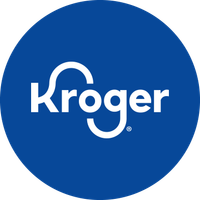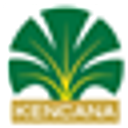
Kroger Co
NYSE:KR

Intrinsic Value
The intrinsic value of one
 KR
stock under the Base Case scenario is
73.96
USD.
Compared to the current market price of 68.22 USD,
Kroger Co
is
Undervalued by 8%.
KR
stock under the Base Case scenario is
73.96
USD.
Compared to the current market price of 68.22 USD,
Kroger Co
is
Undervalued by 8%.
The Intrinsic Value is calculated as the average of DCF and Relative values:

Valuation History
Kroger Co

Fundamental Analysis

Kroger's razor-thin margins leave it heavily exposed to cost fluctuations in labor, fuel, and supplier pricing, making the company vulnerable if inflationary pressures continue or intensify, thereby eroding profitability even with modest competitive changes.
Kroger’s extensive footprint and well-established private-label brands provide a robust competitive moat that could help maintain strong customer loyalty and margin stability, despite industry headwinds.

Revenue & Expenses Breakdown
Kroger Co

Balance Sheet Decomposition
Kroger Co

| Current Assets | 15.3B |
| Cash & Short-Term Investments | 4B |
| Receivables | 2.2B |
| Other Current Assets | 9.1B |
| Non-Current Assets | 37.3B |
| PP&E | 32.5B |
| Intangibles | 3.5B |
| Other Non-Current Assets | 1.3B |
Free Cash Flow Analysis
Kroger Co

| USD | |
| Free Cash Flow | USD |
Earnings Waterfall
Kroger Co

|
Revenue
|
147.1B
USD
|
|
Cost of Revenue
|
-113.7B
USD
|
|
Gross Profit
|
33.4B
USD
|
|
Operating Expenses
|
-29.6B
USD
|
|
Operating Income
|
3.8B
USD
|
|
Other Expenses
|
-1.2B
USD
|
|
Net Income
|
2.7B
USD
|
KR Profitability Score
Profitability Due Diligence

Kroger Co's profitability score is 52/100. The higher the profitability score, the more profitable the company is.

Score
Kroger Co's profitability score is 52/100. The higher the profitability score, the more profitable the company is.
KR Solvency Score
Solvency Due Diligence

Kroger Co's solvency score is 50/100. The higher the solvency score, the more solvent the company is.

Score
Kroger Co's solvency score is 50/100. The higher the solvency score, the more solvent the company is.
Wall St
Price Targets
KR Price Targets Summary
Kroger Co

According to Wall Street analysts, the average 1-year price target for
 KR
is 68.88 USD
with a low forecast of 57.57 USD and a high forecast of 78.75 USD.
KR
is 68.88 USD
with a low forecast of 57.57 USD and a high forecast of 78.75 USD.
Dividends
Current shareholder yield for  KR is
.
KR is
.
Shareholder yield represents the total return a company provides to its shareholders, calculated as the sum of dividend yield, buyback yield, and debt paydown yield. What is shareholder yield?
The intrinsic value of one
 KR
stock under the Base Case scenario is
73.96
USD.
KR
stock under the Base Case scenario is
73.96
USD.
Compared to the current market price of 68.22 USD,
 Kroger Co
is
Undervalued by 8%.
Kroger Co
is
Undervalued by 8%.























































 You don't have any saved screeners yet
You don't have any saved screeners yet